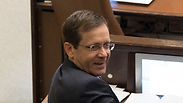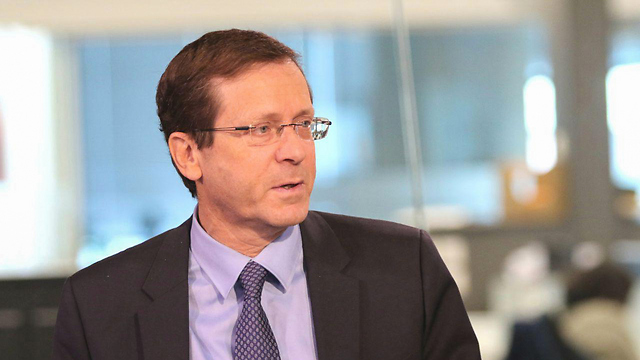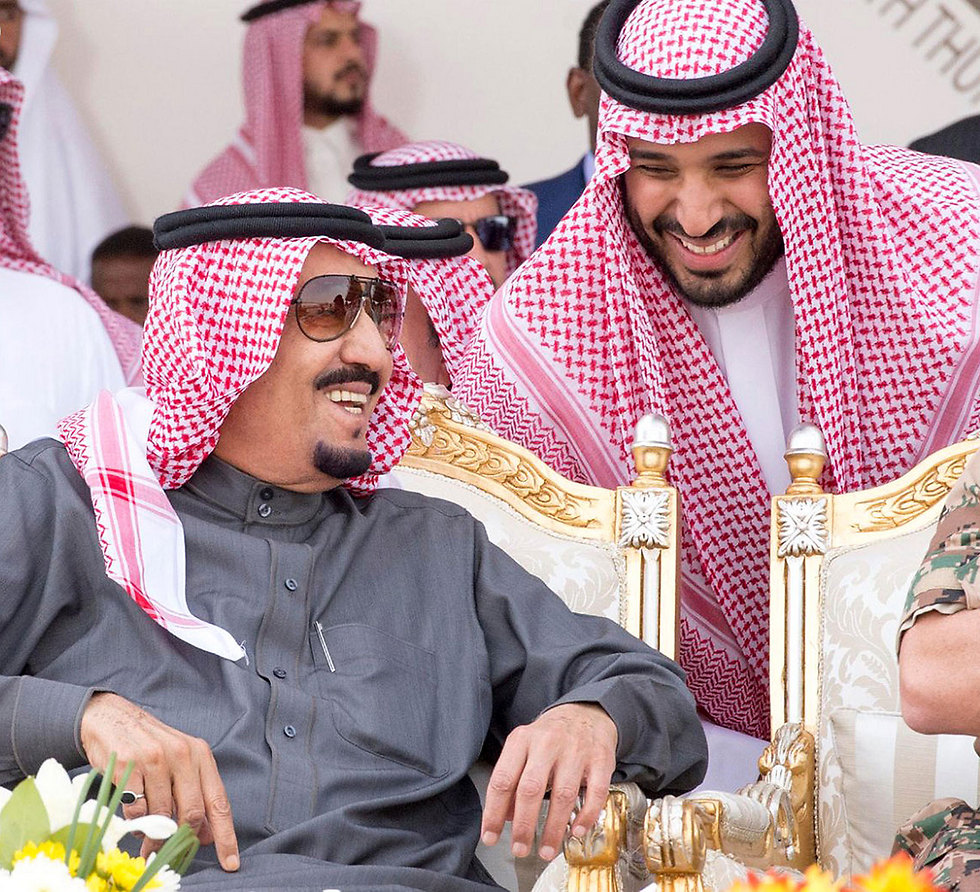
Opposition leader Herzog
Photo: Yoav Dudkevitch
Israeli opposition leader Isaac Herzog told a Saudi-owned online newspaper that Riyadh has a big role to play in reviving the deadlocked Israeli-Palestinian peace process. In an interview with the London-based Arabic website Elaph, Herzog said, “we must help Saudi Arabia revive the peace process with the Palestinians.
“Today we are in the most difficult situation between the two peoples,” he stressed, “there is a loss of hope on our side and a blocked path for the Palestinians. When the road is a dead end, unilateral steps begin to come to the fore. I suggest to everyone to beware of (this potentiality) and call on everyone to be more rational.”
Herzog also praised Saudi Crown Prince Muhammad bin Salman, describing him as “one of the great revolutionaries of the Middle East.”
The Israeli parliamentarian was the third high-ranking official to be interviewed by Elaph in recent weeks, in what appears to be tentative feelers towards creating overt ties between the Israeli government and The House of Saud, which share an interest in combating Iranian influence in the region. IDF Chief of Staff Lt.-Gen. Gadi Eisenkot gave the first interview to Elaph, during which he proposed exchanging intelligence with the Saudis. Shortly thereafter, Intelligence Minister Israel Katz formally invited bin Salman to visit Israel.
Suleiman al-Oqeliy, a Saudi political analyst, noted that Israel is beginning to openly acknowledge the powerful political role the Sunni Muslim kingdom plays in Middle East, as well as its strategic importance. “Saudi Arabia has a special place in the global economy and Israelis are seeking to attain peace with Saudi Arabia in order to make peace with the whole area,” he explained to The Media Line.
In his interview, Herzog said Riyadh should be given a “central role” in future arrangements regarding Jerusalem’s Al-Aqsa Mosque, a flashpoint for religious tensions located atop the Temple Mount, Judaism’s holiest site, which is known to Muslims as the Haram al-Sharif.
In this respect, al-Oqeliy warned of attempts by Israel to sabotage diplomatic relations between the Saudi and Jordanian kingdoms. “Israelis have been spreading lies and rumors about Amman in their local media,” he claimed, adding that Israel was trying to “take revenge against Jordan” after it expelled the Israeli ambassador following a shooting incident at the Embassy in Amman late last year.
“Saudi Arabia and the whole world recognize Jordan’s important role in monitoring Islamic and Christian holy sites in Jerusalem. Any reference to Saudi Arabia having special status regarding these holy sites is like separating us from our Jordanian brothers,” al-Oqeliy concluded.
Yihya al-Saoud, the head of the Palestine Committee in the Jordanian parliament, told The Media Line that he agrees with some of Herzog’s remarks, namely that the current “extremist Israeli government” must be replaced in order to achieve peace. However, he strongly condemned “denying” Jordan’s role in monitoring the holy sites in Jerusalem.
“Nobody can ignore our role in Jerusalem in protecting, not only the Islamic holy sites, but also Christian sites,” al-Saoud asserted. “Herzog’s statements about Jerusalem were intended to drive a wedge between Jordan and its sister country Saudi Arabia.”
The Israeli opposition leader also invited Palestinian Authority President Mahmoud Abbas to present his vision of peace to the Israeli parliament, saying this could be based on the 2002 Arab Peace Initiative.
Nabeel Amro, a former PA information minister, similarly contended that the main obstacle to peace is Prime Minister Benjamijn Netanyahu, who has been empowered by the “current American bias towards Israel.”
“Israel recognizes the very important role of Saudi Arabia in the region,” he emphasized to The Media Line, “but since it won’t accept the Saudi position on the peace process, it would be hard to have ties with the kingdom.”
Article written by Dima Abumaria.
Reprinted with permission from The Media Line.


















